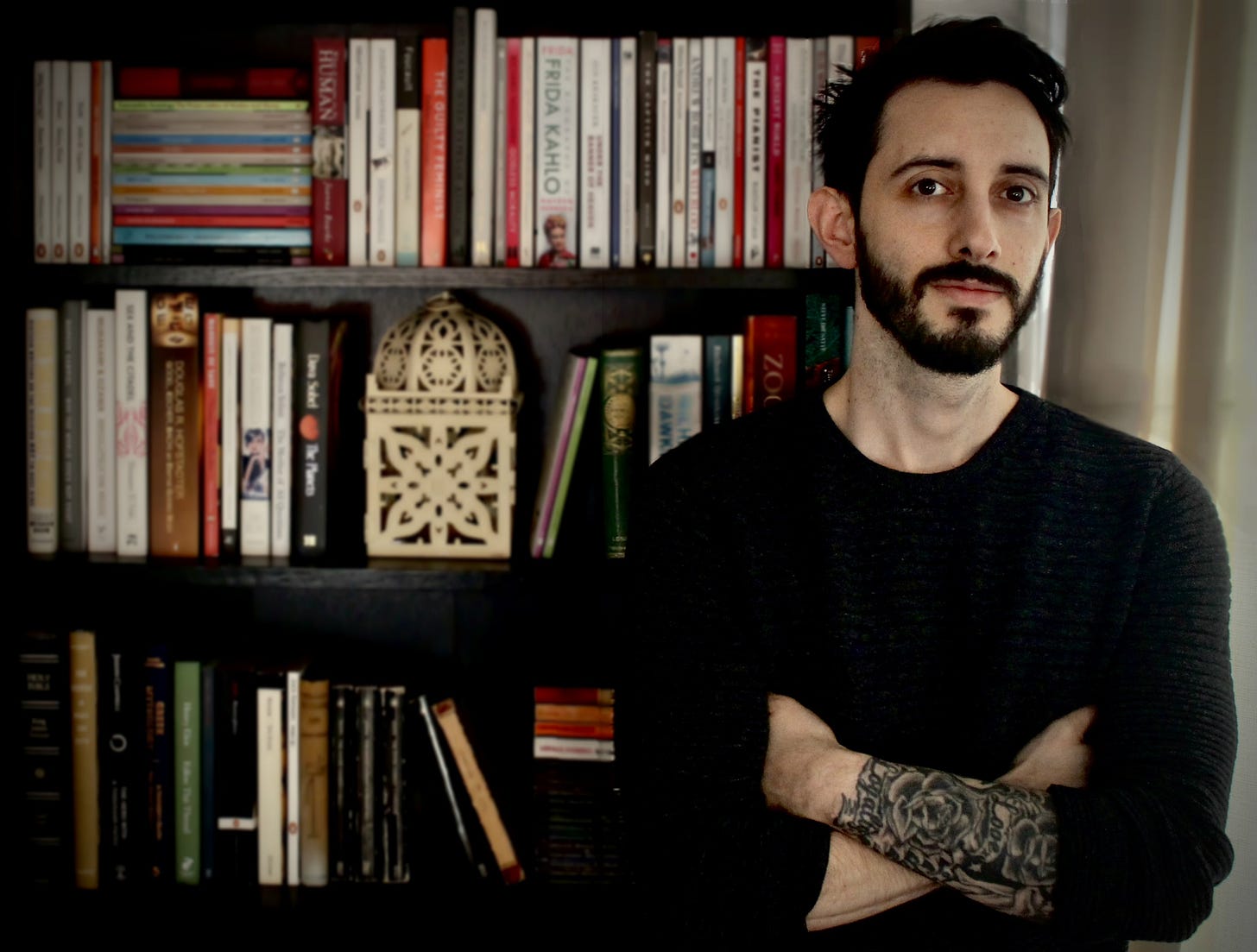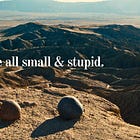Sometimes you read something that articulates exactly how you feel, and says it better than you could have put it yourself. You recognise something profoundly true in fiction. This is the stuff that Art of Conversation is looking for — those moments in our reading that make sense of who we are and how we live.
I’m fascinated with the role of books in our lives and the place of literature in our culture. Meaning isn’t found in the shallows of life but in its depth, so here at Art of Conversation, you’ll read essays that reveal the depth found in books, and which help you find meaning in your own reading. Art of Conversation helps you learn to read more closely and find the joy in reading critically.
Art of Conversation is for people who want to go beyond the last page of the book. It’s for readers who want more from their reading.
At Art of Conversation, you’ll read feature essays that wrestle with modern life by learning from literature — the classics and the contemporary — and culture. We’ll take a close look at a specific book, or deep-dive into a film, or ask questions about the wider culture, and see what they can tell us about how to live well. I recommend starting with:
Looking Beneath the Surface: Is criticism simply about deciding which books to read, or is the critic looking for something deeper?
On Collecting Books: On how we store books, the library as an anti-algorithm, and finding freedom in the finite.
There’s also Words of Wisdom, a series that zooms in on a passage of writing — an essay, a chapter, a speech — from a great thinker on a specific topic. The first edition is C. S. Lewis: Why You Should Read Old Books. Then there’s Double Take, which revisits books and films I first encountered long ago. I recommend starting with Re-reading Peter Benchley’s “Jaws”.
Free vs Paid
All subscribers get to read most essays as they’re published. These are free to everyone for a month, before they go into the archive.
As a paying subscriber, you’ll get complete access to the full archive. You’ll also receive posts from the Bonus section, with behind-the-scenes access to deleted scenes and exclusive essays. And you’ll have my sincere and undying gratitude for your support. Paid subscriptions keep Art of Conversation going.
Art Of Conversation relies entirely on the support of its readers. I’m a one-man operation here; I have no staff, no other writers, no assistants, just me. If you find what I do valuable, you can subscribe for as little as £5 a month, or £50 a year.
Who am I?
The short answer:
I’m Matthew Morgan, an omnivorous reader obsessed with books, entranced by cinema, and constantly thinking about culture.
The longer answer:
There’s a conventional route to becoming a writer that starts with an impressive university and finishes with being published by a prestigious publisher or news outlet. I took a different route.
I dropped out of college to write a terrible first novel. (I didn’t intend for it to be terrible, it just happened that way.) I worked as a carpenter, a kitchen assistant, a cleaner, and a handyman. The whole time, I read as many books as I could — everything from The Divine Comedy to The Human Stain, from Austen to Zola.
I eventually studied for a degree in English Literature while working as a bookseller. The job meant I read even more, and my studies made me a better writer. My degree was pursued in the same intellectually promiscuous manner that I’d lived my life: I studied literature and creative writing alongside evolution and astronomy. I wrote a second book, slightly less terrible though still unpublishable.
I thought about the conversations I loved having about the books I read, and I swerved again, turning my attention to writing the essays that became Art of Conversation. Now, my writing for this ever-growing project is informed by the peripatetic defiance of boundaries that led me here.
If it’s crucial to contemporary culture, or challenging to some convention, or just plain fascinating, I’ll write about it.
My AI Policy
The landscape of Artificial Intelligence is contoured with many hills and valleys where nuances hide out from the casual observer; an informal glance leaves the impression that the land lies flat and clear. What actually constitutes AI is contested.
Some include the algorithms by which I find a video-essay that inspires a piece I write, or the photo-editing software I use to create the images for this website. Others specifically mean generative AI such as ChatGPT when they discuss the topic.
I do not use generative AI tools for anything I do here. Every word you read is generated by the organic, temperamental, variously successful and failing brain in my head. I spell out my feelings on AI in some detail here:





